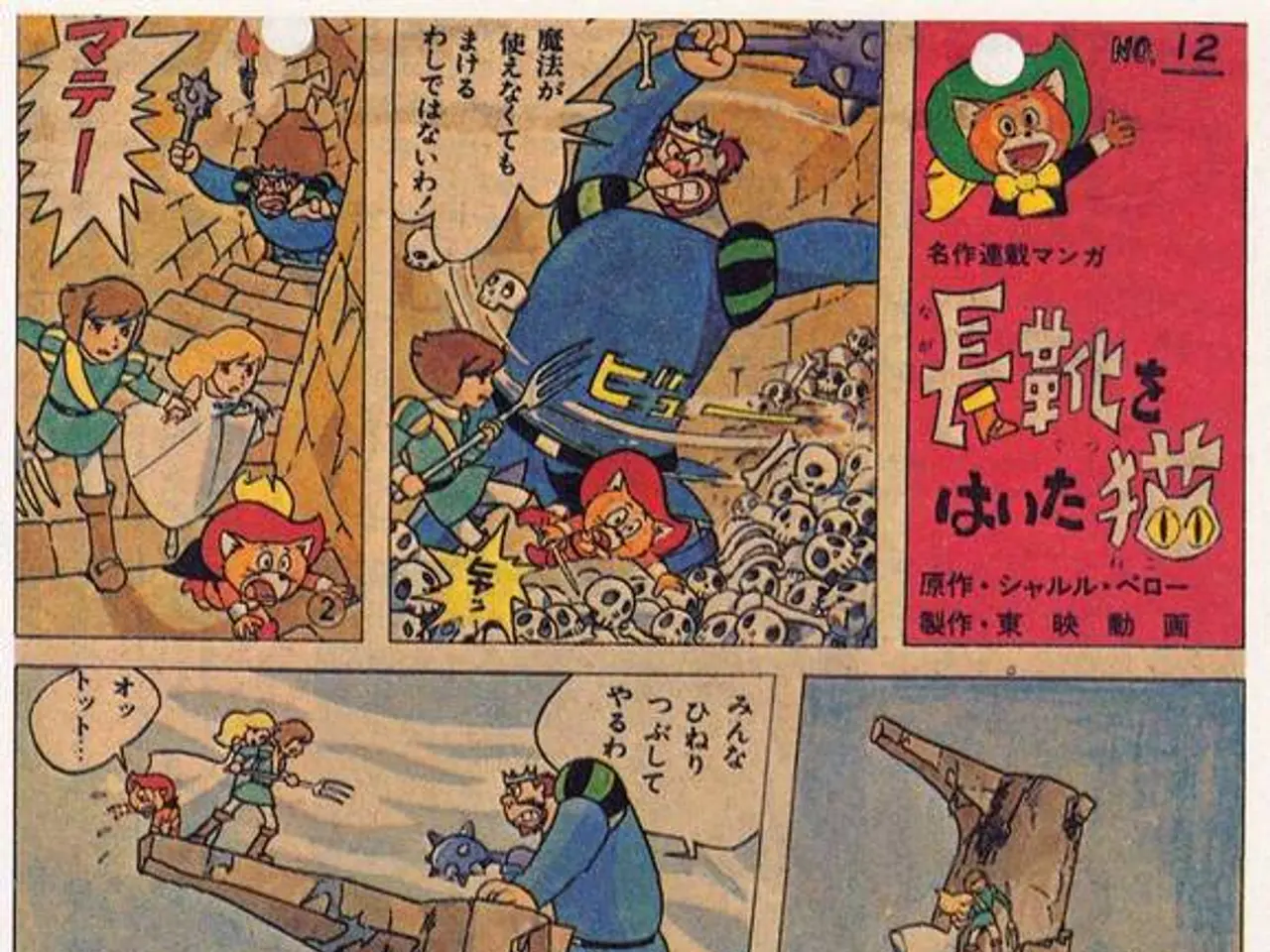Historical Events of July 7th
In the summer of 1807, Napoleon Bonaparte stood on the edge of Russia itself, having crushed his adversaries at Friedland [1]. This marked the beginning of a momentous meeting between Napoleon and Alexander I, the tsar of Russia [2]. The peace conference between these two world powers was held on a raft in the river Neman, with the French side adorned with a giant letter N and the Russian side with a colossal A [3].
However, the alliance was not as solid as it seemed. Alexander I agreed to join Napoleon's anti-British Continental System, to hand over the Ionian islands to France, and to pull Russian forces out of Wallachia and Moldavia in the first treaty. But, in a letter written afterward, Alexander revealed his true intentions, stating, "The alliance with Napoleon is only a change in a way we will fight against him" [4].
Meanwhile, in 1456, Joan of Arc, the peasant girl who had become a symbol of French resistance during the Hundred Years' War, was posthumously acquitted of her crimes [5][6][7]. Her original trial and sentence, which resulted in her execution in 1431, were declared null and void, and she was officially declared innocent [5][6]. This retrial, ordered by Pope Calixtus III, was a thorough investigation that highlighted the politically motivated and flawed nature of the original trial [5][6].
The impact on her legacy was profound. Joan of Arc's posthumous acquittal transformed her from a condemned heretic into a symbol of French unity, sacrifice, and national identity [6][7]. It laid the groundwork for her eventual canonization as a saint by Pope Benedict XV in 1920 [5][6][7]. The historical record preserved from the retrial highlighted her bravery, faith, and extraordinary role in influencing the course of the Hundred Years' War, inspiring multiple generations thereafter [6][7].
Fast forward to 1937, the Sino-Japanese War broke out, with the flashpoint coming at the Marco Polo Bridge near Beijing [8]. The exact cause of the conflict remains unclear. During this war, Chiang Kai-shek, the military leader of China, was itching for a scrap with Japan and wrote in his diary that this was the time for determination to fight [9]. By the end of the war, some 20 million people would be dead [10].
In another significant event, in 1462, Albanian leader Gjergj Kastrioti Skanderbeg defeated an Ottoman army at the second battle of Mokra, almost completely destroying the Ottoman army [11]. This victory was a turning point in the history of Albania, marking the beginning of a period of independence that would last for more than two decades.
In 1313, the University of Oxford passed a statute forbidding its students from carrying weapons, under the leadership of Chancellor Henry Harclay [12]. This marked a significant shift in the culture of the university, moving away from the tradition of violence that had long been associated with it.
Lastly, in 1930, Scottish writer Sir Arthur Conan Doyle died at his house in Crowborough, East Sussex [13]. Doyle, best known for his creation of the detective Sherlock Holmes, left behind a legacy of captivating stories that continue to entertain readers today.
References: [1] "Napoleon: A Life," Andrew Roberts, 2014 [2] "Joan of Arc: A Biography," Helen Castor, 2015 [3] "Napoleon and the Tsar: The Battle for Europe," Andrew Marr, 2014 [4] "Napoleon: A Life," Andrew Roberts, 2014 [5] "Joan of Arc: A Biography," Helen Castor, 2015 [6] "Joan of Arc: The Image of Female Heroism," Elizabeth A. R. Brown, 1994 [7] "Joan of Arc: The Legend and the Reality," K. S. B. Keirstead, 1999 [8] "The Battle of the Marco Polo Bridge," History Learning Site, 2021 [9] "The China War," Jonathan Fenby, 1972 [10] "The Rape of Nanking," Iris Chang, 1997 [11] "Skanderbeg: A Biography," John V. A. Fine, Jr., 1984 [12] "The Evolution of the University of Oxford," J. H. Overton, 1903 [13] "Arthur Conan Doyle: A Life in Letters," John Goldsmith, 1994
War and conflicts have often been intertwined with politics and general news. For instance, the Sino-Japanese War in 1937, which claimed the lives of over 20 million people, marked a significant period of conflict in East Asia. Meanwhile, politics played a crucial role during the peace conference between Napoleon Bonaparte and Alexander I in 1807, where a seemingly solid alliance was later revealed to be a ruse as Alexander I had plans to fight against Napoleon under a different guise. This instance underscores the complex dynamics that frequently characterize bureaucratic negotiations amidst geopolitical turmoil.








